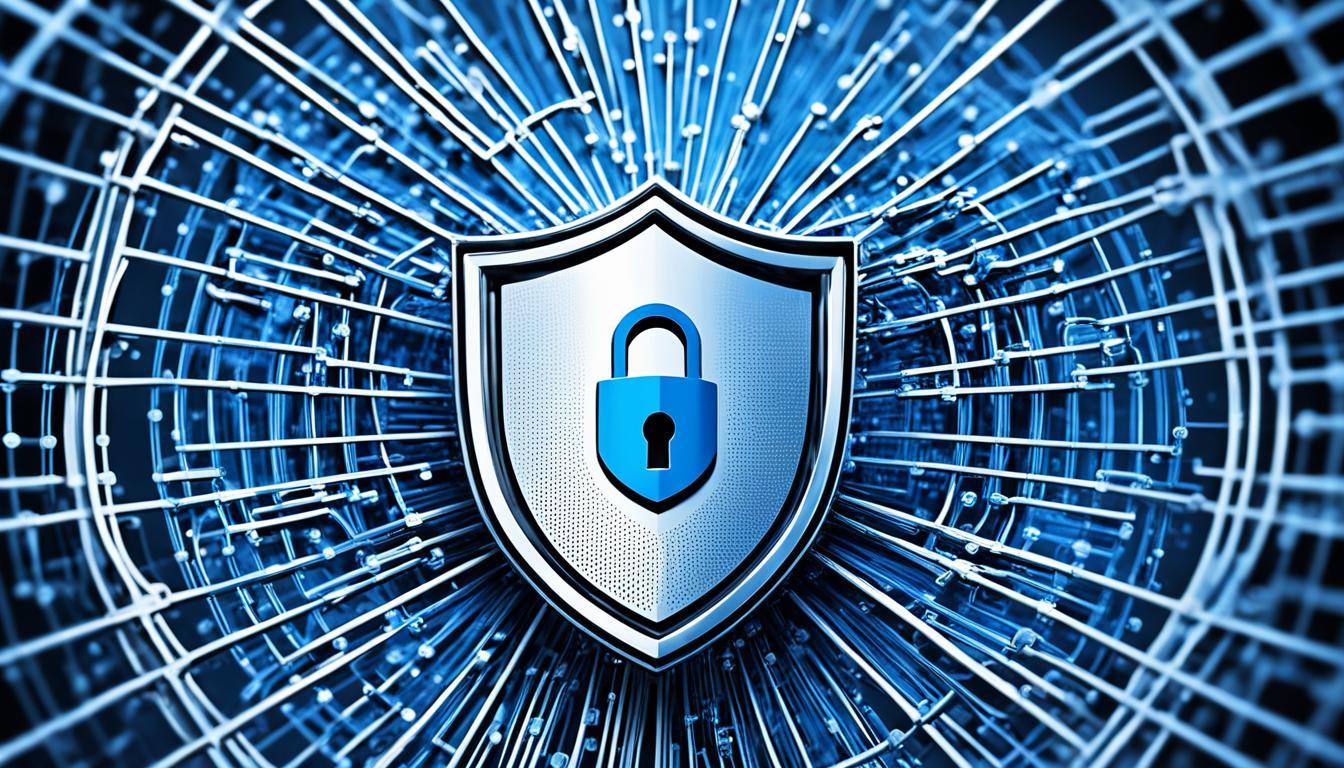What is Network Security? Definition, Importance, and Types – Ark Solvers

What is Network Security? Definition, Importance, and Types
Cyber threats are a big concern in today’s digital world. But what is network security, and why is it so important? Let’s explore the world of network security together.
Key Takeaways
- Network security is about keeping a computer network safe from unauthorized access and cyber threats.
- It’s key for protecting sensitive info, keeping businesses running, and keeping digital systems safe.
- Network security uses tools like firewalls, intrusion systems, encryption, and access controls.
- Good network security needs a mix of technical and human efforts.
- It’s important to keep up with the latest security trends and best practices to stay safe.
Now, you might wonder: What makes the best network security systems stand out? As you read on, you’ll learn what makes some security solutions better. You’ll see how they protect your digital stuff from cyber threats.

Understanding Network Security
Network security is key in today’s world. It keeps organizations safe from cyber threats. Knowing about network security helps protect data and keep networks safe.
Network Security Definition
Network security uses practices and technology to keep networks, devices, and data safe. It guards against unauthorized access, theft, or disruption and secures routers, switches, servers, and devices.
Importance of Network Security
In our digital world, cyber threats are always changing and getting more complex. Strong security helps protect information, prevent data breaches, and keep businesses running smoothly. Here’s why network security matters:
- It fights against malware, viruses, and hacking
- Keeps sensitive data safe and stops unauthorized access
- Keeps network resources available and intact
- Follows industry rules and standards
- Helps keep the organization’s reputation and trust
Good network security needs a strong plan. This plan might include firewalls, systems to detect and stop intrusions, encryption, and controls on who can access. Knowing about network security helps organizations make a strong plan to protect their digital assets and keep their operations going.
What is Network Security
Network security keeps computer networks and their data safe from unauthorized access and cyber threats. It uses various techniques, tools, and protocols to protect the integrity, confidentiality, and availability of network resources.
Securing communication channels, devices, and infrastructure is key to network security. It helps prevent data theft, keep data private, and ensure critical network components work well.
Key Elements of Network Security
- Network security protocols: These are rules like SSL/TLS, IPsec, and HTTPS that make sure communication over networks is secure.
- Network security tools: These include firewalls, intrusion detection and prevention systems (IDS/IPS), VPNs, and encryption technologies. They help monitor and protect network traffic.
- Access control mechanisms: These ensure that only authorized users, devices, and applications can access network resources.
- Vulnerability management: This involves finding, checking, and fixing security weaknesses in the network to lower the risk of cyber attacks.
- Incident response and threat monitoring: These are steps to spot, analyze, and handle security incidents. They also include proactive measures to keep up with new threats.
Strong network security is vital for all organizations. It protects sensitive data, keeps businesses running smoothly, and shields the digital world from cyber threats. A solid network security plan helps organizations stay strong and maintain their stakeholders’ trust.
Types of Network Security
In today’s digital world, keeping computer networks safe is key. Network firewalls and intrusion detection systems are two main tools for protecting networks. They prevent unauthorized access and catch, stop, and act on cyber threats.
Firewalls
Network firewalls are the first defense against threats. They watch and control what data goes in and out of the network, allowing only allowed data to pass. Firewalls use rules to check data, stopping bad stuff while letting good data pass.
They act like guards, keeping networks safe from hackers and cyber attacks.
Intrusion Detection and Prevention Systems
Intrusion detection and prevention systems (IDPS) work with firewalls to fight threats. They watch the network and system activities for signs of danger. If they find something bad, they can stop it, warn people, or start an investigation.
This helps keep networks safe from intruders. IDPS makes networks more secure by catching and stopping threats early.
Together, firewalls and IDPS create a strong network defense. They protect against many threats, keeping data and resources safe and secure.
Network Security Best Practices
Keeping your network safe is key in today’s digital world. A strong plan that uses the latest encryption and access controls would help. This approach helps protect your wireless network, keep data safe, and fight cyber threats.
Encryption Techniques
Encryption is a key part of network security. Using advanced encryption like AES, RSA, and TLS keeps your data safe. Virtual private networks (VPNs) also boost security by protecting your online activities.
Access Control Mechanisms
It’s vital to control who can access your network. Use strong authentication to check if users and devices are who they say they are. Also, set up strict permissions and check access logs often to keep your data safe.
Adding network monitoring tools and incident response plans gives you more security. These tools help spot and stop security issues fast.
Creating detailed cybersecurity policies and training your team is also crucial. This way, your team can help protect your network from threats.
Conclusion
In today’s digital world, keeping networks safe is key for all kinds of organizations. It’s vital to guard against threats like data breaches and malware. This helps protect sensitive info and keeps businesses running smoothly.
We’ve examined network security, its importance, and the different ways to secure networks. Tools like firewalls and encryption help keep data safe, and these strategies protect against unauthorized access and cyber threats.
As cyber threats change, businesses must always be on the lookout. Regular checks and updates help keep networks safe. By doing this, companies can keep their data and systems secure.
FAQ
What is network security?
Network security is about protecting a computer network and its devices, data, and resources. It keeps them safe from unauthorized access and cyber threats.
Why is network security important?
It’s key for businesses and organizations to keep their data safe and systems secure. Network security stops data breaches and malware, protecting against serious issues.
What are the main components of network security?
Key parts include firewalls, intrusion systems, encryption, access controls, VPNs, and antivirus software.
What are the different types of network security?
There are four main types: 1. Firewalls control network traffic with security rules. 2. IDS/IPS systems detect and block unauthorized network activity. 3. Access control limits who can see or use network resources. 4. Encryption makes data unreadable to others.
What are the best practices for network security?
Best practices include Keeping devices and software updated, Using strong access controls like multi-factor authentication, Watching for suspicious network activity, Using encryption to protect data, Backing up data and having a response plan, and Training employees on security.
What are some common network security threats?
Malware, phishing, DDoS attacks, unauthorized access, and data breaches are common threats. It’s important to stay updated and use the right defenses.


